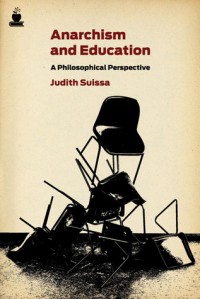
Anarchism and Education: A Philosophical Perspective

Some good, big ideas in this little book. When defining a liberal education, Suissa quotes Paul Hirst in saying "the liberal educational ideal is essentially non-utilitarian and non-vocational...[It] emphasizes the idea of the mind and mental development" in a "conception of human nature that regards human potential as consisting primarily in the development of the mind" (p. 22). I like this idea, because it's basically what separates us from other animals, our ability to develop our mind. What it means to reach one's full potential then is to never stop learning and continually enhance one's education. Potential is in no way related to the ability to reach a certain level of productivity in the economy.
Chapter 2 was very interesting as well. Since many of the criticisms of anarchism "hinge on the concept of human nature," Suissa explores the anarchist position on the topic. I thought she made some really good points. Humans are basically social, helpful creatures. And though there will always be exceptions, those exceptions will never be the majority.
Loved the bit about the anarchist take on authority, and the theory of decentralization: "There could, in theory, be an infinite, elaborate network of such circles, the crucial point being that none of them would have absolute authority..." (p. 58)
Another good idea here was using education to foster the development of certain beliefs and attitudes, such as fraternity. And I loved the proposal for an education that combines work with study, manual training with intellectual exercise.
"An education that was divorced from the world of work, that is, an education that was entirely bookish or grammar-schoolish in conception was valueless from the point of view of ordinary working-class children. Of course, an education that went too far in the other direction, which brought up children merely to be fodder for factories, was equally unacceptable. What was required was an education which would equip a child for the work-place but would also give him a degree of independence in the labour market." (quoting Smith 1983) (p. 105)
 3
3
 1
1









